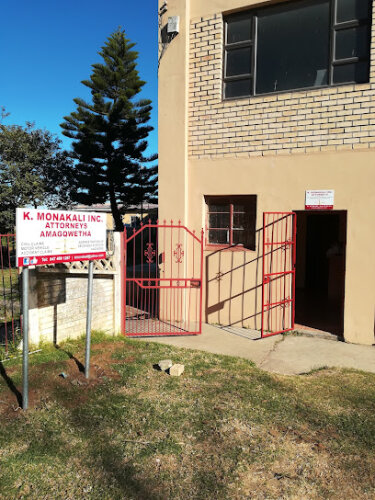Best Toxic Tort Lawyers in East London
Share your needs with us, get contacted by law firms.
Free. Takes 2 min.
List of the best lawyers in East London, South Africa
About Toxic Tort Law in East London, South Africa
Toxic Tort law deals with legal claims involving harm caused by exposure to dangerous substances or chemicals. In East London, South Africa, this often relates to industrial pollution, agricultural chemicals, hazardous waste, or workplace exposure to toxic products such as asbestos or pesticides. A Toxic Tort case typically involves individuals or groups who believe that exposure to these substances has resulted in personal injury, property damage, or other health complications. These cases can be complex, involving scientific evidence, detailed medical records, and specific legal regulations related to environmental protection and personal safety.
Why You May Need a Lawyer
There are several situations in East London where you may require legal assistance relating to Toxic Tort:
- You or someone you know has experienced health issues that you believe are linked to chemical or environmental exposure.
- Your property or business has suffered damage due to industrial pollution or hazardous waste spills.
- You are part of a community affected by contaminated water, air, or soil.
- You are facing medical expenses and loss of income because of toxic exposure at work.
- You are unsure about your rights and need help holding companies or individuals accountable for negligence.
Local Laws Overview
South African law recognises claims resulting from environmental harm and personal injury due to toxic substances. Key legal aspects in East London include:
- National Environmental Management Act (NEMA): Sets out principles for environmental management and provides a basis for holding polluters accountable.
- Occupational Health and Safety Act (OHSA): Regulates safe working environments and sets out employer obligations regarding exposure to hazardous substances.
- Consumer Protection Act: Offers some recourse for harm caused by defective or toxic products.
- Common law principles: Such as negligence, nuisance, and damages for personal injury or property harm.
- Class actions: Permitted under South African law, which can be useful when large groups (like communities) are affected.
Frequently Asked Questions
What is a Toxic Tort?
A toxic tort is a legal claim arising from injury or harm caused by exposure to dangerous substances such as chemicals, pollutants, or hazardous products. It covers both individual and group claims.
What are common sources of toxic exposure in East London?
Common sources include factories and industrial sites, agricultural chemicals like pesticides, poor waste management processes, contaminated water supplies, hazardous building materials like asbestos, and vehicle emissions.
How do I know if I have a Toxic Tort claim?
You may have a claim if you can show a clear link between your health problems or property damage and documented exposure to a hazardous substance, usually supported by medical and scientific evidence.
What kind of compensation can I receive?
Compensation may cover medical expenses, loss of earnings, pain and suffering, property damage, and sometimes punitive damages if the conduct was reckless or intentional.
How long do I have to make a claim?
There are time limits, known as prescription periods, which generally allow you three years from the date you become aware of the harm and its cause to file a claim. Special rules may apply in some cases.
Can groups or communities file Toxic Tort claims together?
Yes, South African law allows for class actions, so groups or communities affected by the same toxic exposure can combine their claims for greater impact and efficiency.
What evidence do I need for a successful case?
You will need detailed medical records, proof of exposure, scientific reports connecting the toxic agent to your injury, photographs or samples from the site, and possibly testimony from experts in medicine and environmental science.
Who can be held accountable in a Toxic Tort case?
Responsible parties may include companies, employers, landowners, manufacturers, or government agencies, depending on who had a duty to prevent exposure and failed in that duty.
How much does it cost to pursue a Toxic Tort claim?
Costs vary, but many lawyers offer conditional or contingency fee arrangements, meaning you may only pay legal fees if your claim is successful. Discuss costs upfront with your lawyer.
What should I do if I suspect toxic exposure?
Seek medical advice immediately, document your symptoms and potential sources of exposure, collect any relevant evidence, and consult with a lawyer experienced in Toxic Tort law as soon as possible.
Additional Resources
If you need further information or assistance regarding Toxic Tort matters in East London, these organizations and governmental bodies may be helpful:
- Department of Environmental Affairs (DEA): For complaints about pollution and environmental hazards.
- South African Human Rights Commission: For cases involving environmental rights violations.
- Legal Aid South Africa: To access free or subsidised legal advice if you meet certain criteria.
- Eastern Cape Department of Health: For assistance with medical issues linked to hazardous exposures.
- Nonprofit Environmental Justice Organisations: Such as groundWork or the Centre for Environmental Rights for advocacy and legal support.
Next Steps
If you believe you have been affected by toxic exposure in East London:
- Seek medical attention to address any immediate health concerns and document your condition.
- Try to collect evidence such as photos, medical reports, and records of the suspected source of exposure.
- Contact a lawyer experienced in Toxic Tort law. You can approach private legal firms or seek advice from Legal Aid South Africa if you qualify.
- Report the incident to relevant authorities, such as the DEA or local municipality, to prompt investigation and remediation.
- Join or form community action groups if others are also affected; class actions can strengthen your position.
- Remain proactive; keep detailed records of all communications, symptoms, and any expenses or losses related to the exposure.
Lawzana helps you find the best lawyers and law firms in East London through a curated and pre-screened list of qualified legal professionals. Our platform offers rankings and detailed profiles of attorneys and law firms, allowing you to compare based on practice areas, including Toxic Tort, experience, and client feedback.
Each profile includes a description of the firm's areas of practice, client reviews, team members and partners, year of establishment, spoken languages, office locations, contact information, social media presence, and any published articles or resources. Most firms on our platform speak English and are experienced in both local and international legal matters.
Get a quote from top-rated law firms in East London, South Africa — quickly, securely, and without unnecessary hassle.
Disclaimer:
The information provided on this page is for general informational purposes only and does not constitute legal advice. While we strive to ensure the accuracy and relevance of the content, legal information may change over time, and interpretations of the law can vary. You should always consult with a qualified legal professional for advice specific to your situation.
We disclaim all liability for actions taken or not taken based on the content of this page. If you believe any information is incorrect or outdated, please contact us, and we will review and update it where appropriate.










